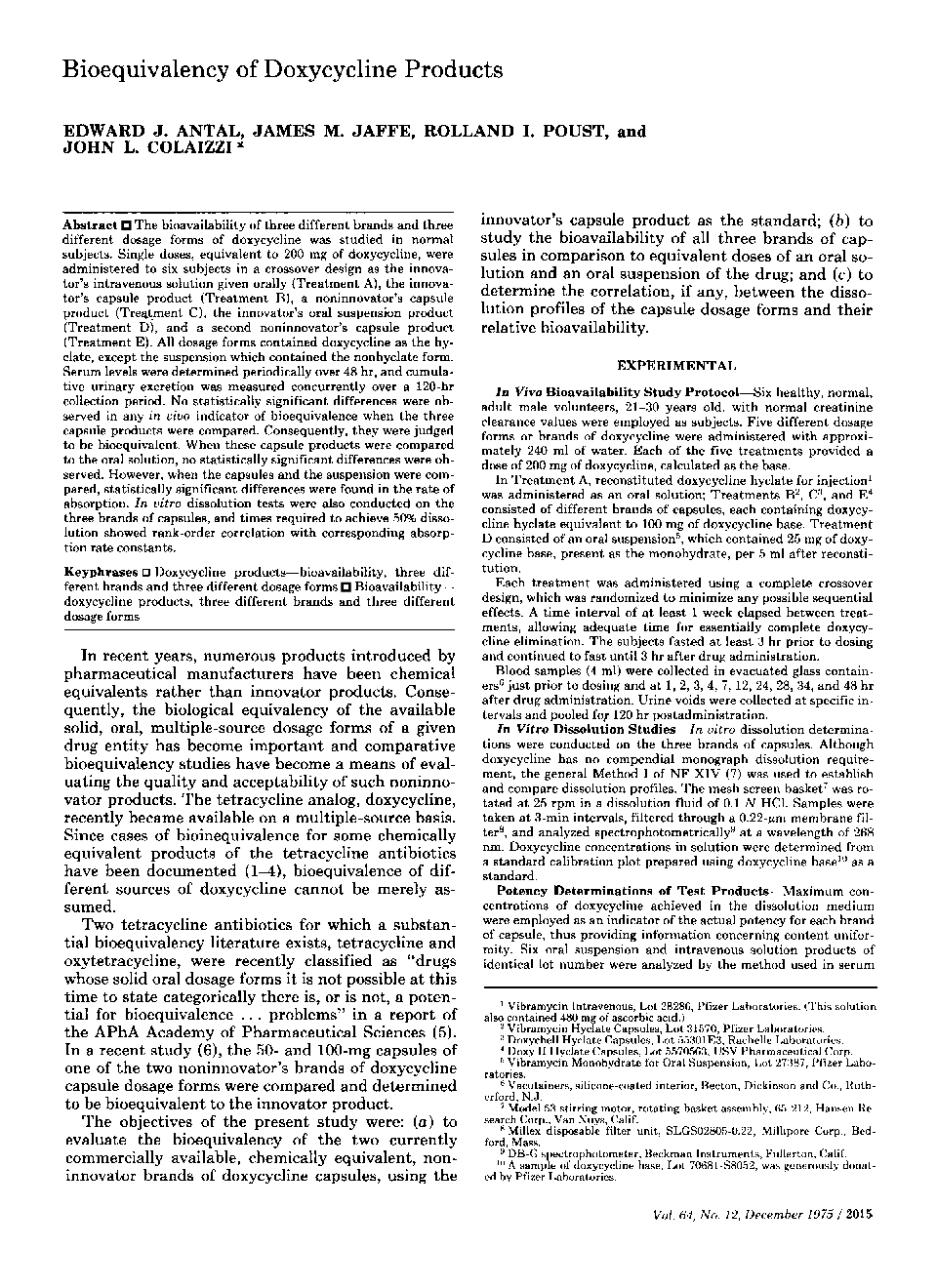| Article ID | Journal | Published Year | Pages | File Type |
|---|---|---|---|---|
| 2488488 | Journal of Pharmaceutical Sciences | 2018 | 4 Pages |
Abstract
The bioavailability of three different brands and three different dosage forms of doxycycline was studied in normal subjects. Single doses, equivalent to 200Â mg of doxycycline, were administered to six subjects in a crossover design as the innovator's intravenous solution given orally (Treatment A), the innovator's capsule product (Treatment B), a noninnovator's capsule product (Treatment C), the innovator's oral suspension product (Treatment D), and a second noninnovator's capsule product (Treatment E). All dosage forms contained doxycycline as the hyclate, except the suspension which contained the nonhyclate form. Serum levels were determined periodically over 48 hr, and cumulative urinary excretion was measured concurrently over a 120âhr collection period. No statistically significant differences were observed in any in vivo indicator of bioequivalence when the three capsule products were compared. Consequently, they were judged to be bioequivalent. When these capsule products were compared to the oral solution, no statistically significant differences were observed. However, when the capsules and the suspension were compared, statistically significant differences were found in the rate of absorption. In vitro dissolution tests were also conducted on the three brands of capsules, and times required to achieve 50% dissolution showed rankâorder correlation with corresponding absorption rate constants.
Related Topics
Health Sciences
Pharmacology, Toxicology and Pharmaceutical Science
Drug Discovery
Authors
Edward J. Antal, James M. Jaffe, Holland I. Poust, John L. Colaizzi,
